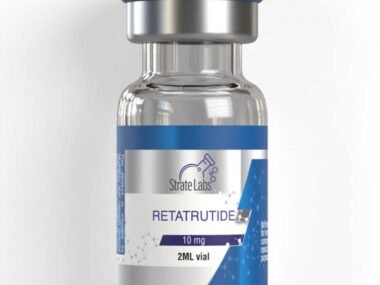Detoxification is a crucial first step in the journey to overcoming alcohol dependence. For individuals struggling with alcohol use, the body and mind become accustomed to the substance, creating a physical and psychological reliance that can be challenging to break. We will explore how detoxification serves as a foundational stage in recovery, preparing the body for the subsequent stages of treatment. Detox helps manage withdrawal symptoms, stabilizes the individual’s health, and provides a structured environment where safe monitoring is possible. While detox alone does not address the underlying behavioral patterns of addiction, it creates a safe starting point for therapy, counseling, and support systems that encourage long-term sobriety. Understanding its role can help families and individuals approach recovery with realistic expectations and a strong commitment to the process.
Understanding the Impact of Detoxification on Recovery
- Physical Stabilization and Withdrawal Management
Alcohol dependence often causes a range of physical effects, including liver damage, cardiovascular strain, and neurological disturbances. When a person stops drinking abruptly, the body reacts with withdrawal symptoms, which can range from mild irritability to severe complications such as seizures or delirium tremens. Detoxification provides a controlled environment where medical monitoring ensures that these symptoms are managed safely, making it a key component of alcohol recovery programs in Portland.
Health professionals can provide medications, hydration, and nutrition support to reduce the intensity of withdrawal and protect vital organs. By addressing these physical challenges early, detox helps prevent medical emergencies and creates a safer path for the individual to continue with long-term recovery programs. It also allows the body to gradually adjust to the absence of alcohol, reducing the likelihood of relapse triggered by overwhelming physical discomfort.
- Psychological Preparation for Recovery
Detox is not solely a physical process; it also prepares individuals mentally for the changes required in recovery. Alcohol often plays a role in coping with stress, anxiety, or emotional pain. When the substance is removed, underlying psychological issues may surface. A structured detox program provides access to counseling, support groups, and mental health assessments that help individuals recognize these patterns and develop strategies to manage them. Early exposure to therapy during detox can reduce fear and resistance toward the more intensive treatments that follow. Additionally, addressing the psychological aspects at this stage reinforces the commitment to sobriety, offering a clearer understanding of the motivations behind alcohol use and the changes necessary to sustain long-term recovery.
- Reducing the Risk of Relapse
Detoxification can significantly reduce the risk of relapse by eliminating alcohol from the body and addressing the acute withdrawal phase in a safe setting. Many individuals attempting to quit without supervision experience intense cravings, which can quickly lead to relapse. By providing medical oversight, coping strategies, and emotional support, detox creates a more stable foundation for the next steps in recovery. This stage also allows individuals to observe the effects of sobriety on their mood, energy levels, and overall health, which can serve as motivation to maintain a life free from alcohol. Understanding the triggers and developing early relapse prevention techniques during detox increases the likelihood of long-term success.
- Creating a Structured Environment
One of the significant benefits of detox is the structure it provides. Recovery begins with a carefully monitored schedule that includes regular medical check-ins, personalized nutrition plans, therapeutic sessions, and rest periods. This environment eliminates external stressors and temptations, allowing individuals to focus entirely on their health and well-being. A structured setting not only ensures safety during withdrawal but also helps establish routines that are critical for sustaining recovery after detox. The predictable schedule and constant support reinforce positive habits, reduce anxiety, and encourage participants to engage fully with the recovery process. By experiencing stability in this initial stage, individuals gain confidence in their ability to maintain sobriety in less controlled environments later on.
- Foundation for Long-Term Treatment
Detoxification serves as the groundwork for long-term treatment programs such as counseling, behavioral therapy, and support group participation. While detox addresses the immediate physical and emotional effects of alcohol cessation, it does not resolve the patterns of thought and behavior that contribute to dependence. By completing detox, individuals enter the next phase of recovery with a clear mind and a body prepared to respond to therapeutic interventions. This transition is smoother and more effective because the individual is no longer dealing with severe withdrawal symptoms or acute physical discomfort. Detox thus acts as a bridge, enabling a stronger engagement with ongoing treatment programs that aim to maintain sobriety, improve coping skills, and foster lasting personal growth.
- Support for Families and Caregivers
Detoxification also offers an opportunity for families and caregivers to become involved in the recovery process. Educational programs, counseling sessions, and support networks help families understand the challenges their loved ones face and how to provide meaningful support. This involvement can enhance the individual’s motivation, alleviate feelings of isolation, and foster a network of accountability that supports recovery efforts. Families equipped with knowledge about withdrawal, coping strategies, and relapse prevention can contribute significantly to the overall success of treatment. By participating in the detox phase, caregivers also gain insight into the emotional and physical journey of recovery, fostering a more empathetic and supportive environment at home.
Detoxification plays an essential role in alcohol recovery by providing a controlled, safe environment to manage withdrawal, stabilize physical health, and begin addressing psychological challenges. By reducing the risk of relapse, establishing structure, and preparing individuals mentally and physically for ongoing treatment, detoxification ensures a more successful transition into comprehensive recovery programs. Additionally, the involvement of families and caregivers during this stage strengthens the support system necessary for sustainable recovery. Recognizing the importance of detox helps individuals and their loved ones approach alcohol recovery with clarity, commitment, and a focus on lasting change.










